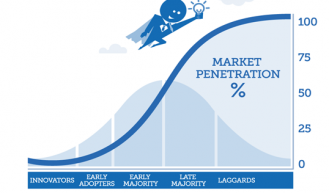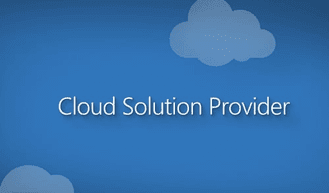From Dynamics 365 Business Central to Business Applications
CRM
CSP
Customer Engagement
Dynamics 365
Power Platform
QBS Marketplace
How do I move from Dynamics 365 Business Central into Business Applications?
When thinking about the next steps in the evolution of the Microsoft Business Applications platform, there are two, key things that need to be understood and recognized by partners currently proficient in Dynamics 365 Business Central.
They are, specifically, the Microsoft Power Platform and the Microsoft Dataverse.
The Power Platform and in particular, Power Apps bring huge potential for partners to expand their services portfolio and therefore, generate increased annuity revenue per customer around Dynamics 365 Business Central.
Knowing that the future of Dynamics 365 Business Central is linked to the Dataverse is only the start of the journey; Understanding what can be achieved through seamless integration with the Power Platform and Power Apps is crucial to being successful along the way.
What is the technology platform and why should I care?
The Power Platform consists of three component parts
- Power BI
- Power Automate
- Power Apps
Power BI is all about creation of visual dashboards and making data-driven insights available to everyone. Power Automate is all about enabling automation of business processes through workflow.
Power Apps is where it gets particularly interesting because partners can leverage Dynamics 365 Business Central virtual entities directly as if they were native Common Data Service entities meaning that Business Central data can be used outside of the application making this a genuine alternative to writing extensions in certain scenarios.
This new ability to build custom apps to solve common business challenges, with mobile device support by default is extremely powerful. Consider a stock check app that a mobile device user can use to update data directly whilst only requiring lower cost Power Apps and Team Member licenses to enable this.
When we start to think outside of the traditional Business Central box, other scenarios also become apparent. The possibility of creating deal and pipeline management capabilities for customers, based on the exact same account and contact set of data that is already within Business Central and surfaced through the common user interface, which is already familiar to all other flavors of Dynamics 365 Business Applications is an obvious example that springs to mind.
Of course, once these apps are created, they can be sold and deployed multiple times over, on an annuity revenue model, per user, per month, just like the Microsoft technologies they have been created to support, hence the increased revenue opportunities previously mentioned.
What are the challenges through this evolution?
Managing Dynamics 365 and Power Apps implementations are easy enough when you have a handful of clients but when they start to grow in number, there’s a need to be able to manage these at scale without incurring additional costs that would reduce profitability.
Keeping custom or vertical solutions built on the Dataverse up to date across multiple client tenants, ensuring consistency of versions whilst also protecting any intellectual property that is licensed to customers can also cause headaches.
However, many organizations today have found a better, more cost-effective way to build a scalable business model without increasing direct costs.
How can QBS Group help?
If you are looking for help in solving these common challenges and want a solution to manage all Dynamics 365 and PowerApps implementations in one place, the Cloud Partner Panel (CPP), available through QBS is perfectly placed to help.
The CPP is available for partners to use to manage their customer tenants and can enable:
- More efficient management and monitoring of customers cloud environments
- Easy deployment of and updates to custom or repeatable intellectual property (IP)
- Protection for the monetization of cloud IP once it is deployed
There is also a range of architectural and development services available from QBS alongside technical training to really help partners go from concept to creation for their apps when evolving from Dynamics 365 Business Central to Business Applications.
Also interesting
Sign-up for Power Platform Special Interest Group – Final Friday Webcast


























































